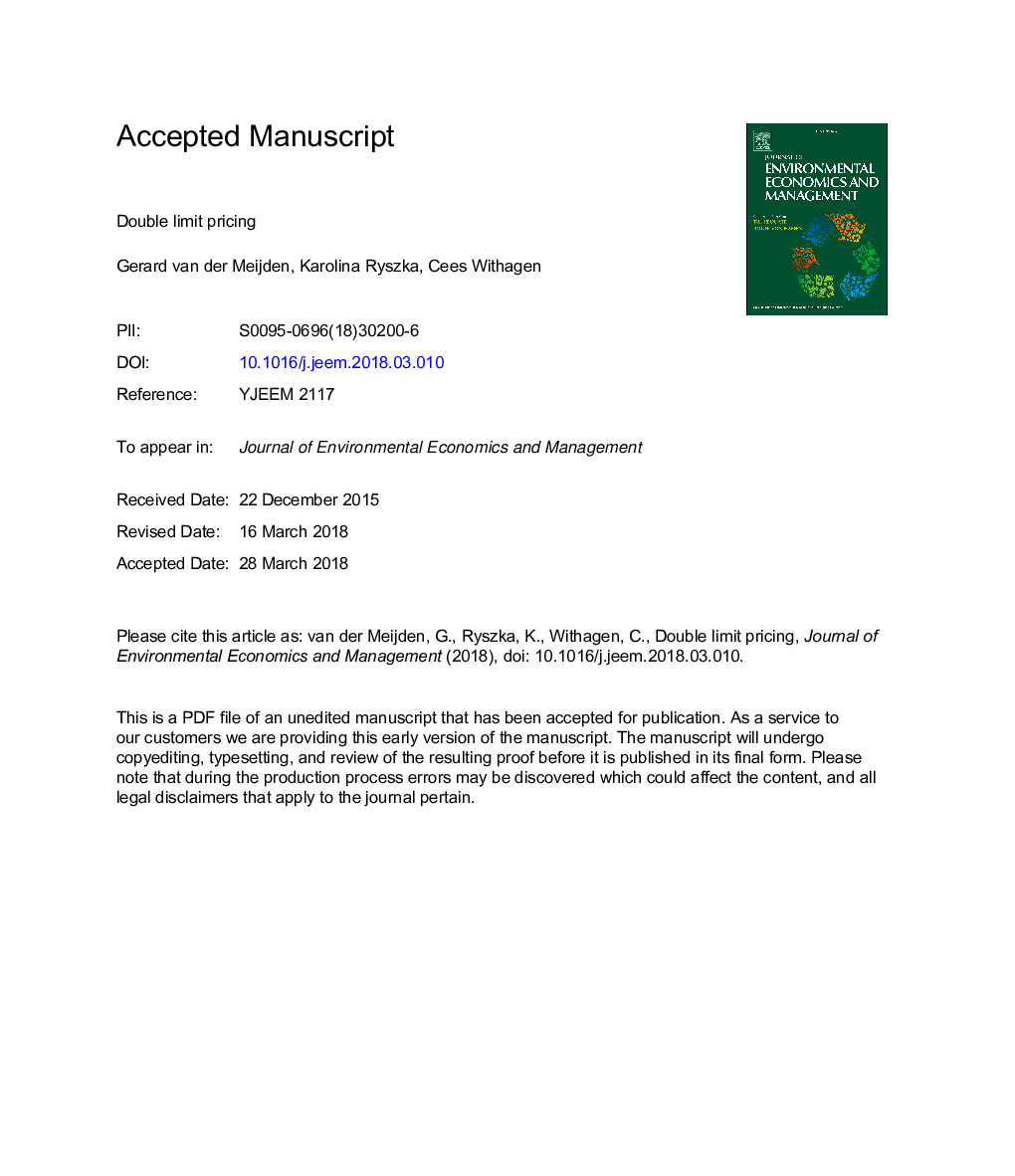| Article ID | Journal | Published Year | Pages | File Type |
|---|---|---|---|---|
| 7361312 | Journal of Environmental Economics and Management | 2018 | 40 Pages |
Abstract
We study oil extraction by a monopolist who faces demand from a climate-aware and a climate-ignorant region. A renewable, perfect substitute for oil is available at constant unit cost. The climate-aware region uses a carbon tax and a renewables subsidy as policy instruments. Due to heterogeneity in climate policies between regions, the oil price path possibly contains two limit-pricing phases. We specify conditions under which a tightening of climate policies results in lower initial carbon emissions. A renewables subsidy and a carbon tax effectively force the monopolist to sell more oil to the climate-ignorant region, during the stage when demand from the climate-aware region has already vanished. We calibrate the model and numerically investigate climate damage and welfare effects of the policies of the climate-aware region. We find that both the carbon tax and a renewables subsidy lower climate damage, even though cumulative emissions are fixed.
Related Topics
Social Sciences and Humanities
Economics, Econometrics and Finance
Economics and Econometrics
Authors
Gerard van der Meijden, Karolina Ryszka, Cees Withagen,
